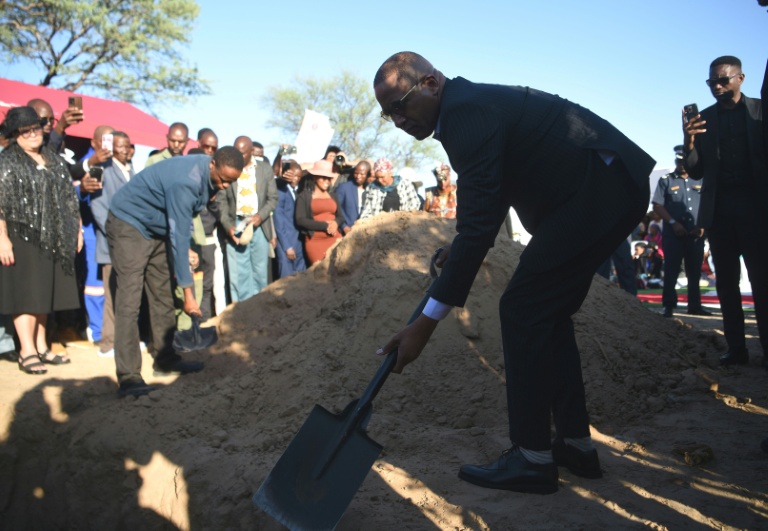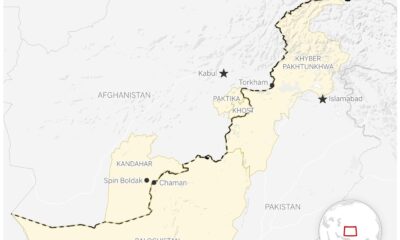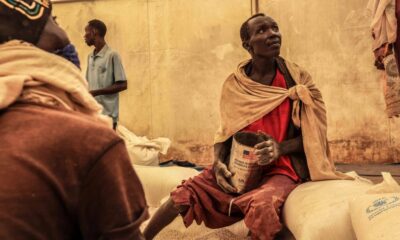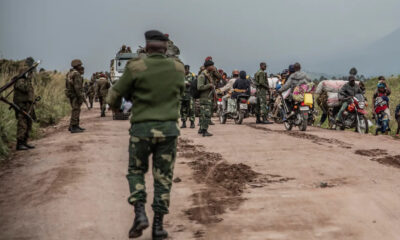World
UN Expert Calls for Recognition of Botswana’s Indigenous San People

A United Nations human rights expert has urged the government of Botswana to grant constitutional recognition and enhanced protections to its indigenous communities, particularly the San people. This call comes after a visit that highlighted the ongoing discrimination faced by the San, who have been marginalized and largely excluded from government welfare services.
The San, known for their hunter-gatherer lifestyle, were evicted from their ancestral lands in the Central Kalahari Game Reserve following the discovery of diamond deposits in the 1980s. Despite living in southern Africa for tens of thousands of years, many San people today live in poverty, struggling to secure basic rights and resources.
During a press briefing, Albert Barume, the UN’s special rapporteur on the rights of indigenous peoples, emphasized that constitutional and legal recognition for indigenous peoples in Botswana remains lacking. “While the government has demonstrated openness and a willingness to engage, such recognition is essential,” Barume stated. He noted that without it, many communities encounter systematic obstacles that threaten their cultural survival and participation in national life.
Barume’s comments followed a 12-day visit to Botswana, where he spoke to indigenous people who reported suffering from discrimination. They expressed concern that they are the only traditional communities in Botswana whose customary land rights have not been acknowledged or protected.
In the late 1990s and early 2000s, Botswana undertook significant actions against San communities, forcibly evicting them from their homes in the Central Kalahari Game Reserve. Although a court ruling in 2006 overturned these evictions and a subsequent ruling in 2011 restored the tribe’s right to access water in the reserve, Barume indicated that only a limited number of San have been able to return to their ancestral lands. He remarked that those who have returned have not received adequate resources and services to make their return sustainable.
In a sign of potential progress, President Duma Boko made headlines last year by allowing the burial of a San elder on ancestral land within the national park. This decision ended a lengthy legal battle and sparked renewed hopes for improved recognition and respect for indigenous groups in Botswana.
Barume’s visit underscores the urgent need for Botswana to address the historical injustices faced by the San people. As the government considers the recommendations from this visit, it faces a crucial opportunity to foster a more inclusive society that respects and acknowledges its indigenous populations.
-

 World4 months ago
World4 months agoScientists Unearth Ancient Antarctic Ice to Unlock Climate Secrets
-

 Entertainment4 months ago
Entertainment4 months agoTrump and McCormick to Announce $70 Billion Energy Investments
-

 Lifestyle4 months ago
Lifestyle4 months agoTransLink Launches Food Truck Program to Boost Revenue in Vancouver
-

 Science4 months ago
Science4 months agoFour Astronauts Return to Earth After International Space Station Mission
-

 Technology2 months ago
Technology2 months agoApple Notes Enhances Functionality with Markdown Support in macOS 26
-

 Top Stories3 weeks ago
Top Stories3 weeks agoUrgent Update: Fatal Crash on Highway 99 Claims Life of Pitt Meadows Man
-

 Sports4 months ago
Sports4 months agoSearch Underway for Missing Hunter Amid Hokkaido Bear Emergency
-

 Politics3 months ago
Politics3 months agoUkrainian Tennis Star Elina Svitolina Faces Death Threats Online
-

 Politics4 months ago
Politics4 months agoCarney Engages First Nations Leaders at Development Law Summit
-

 Technology4 months ago
Technology4 months agoFrosthaven Launches Early Access on July 31, 2025
-

 Top Stories1 week ago
Top Stories1 week agoFamily Remembers Beverley Rowbotham 25 Years After Murder
-

 Entertainment4 months ago
Entertainment4 months agoCalgary Theatre Troupe Revives Magic at Winnipeg Fringe Festival





















